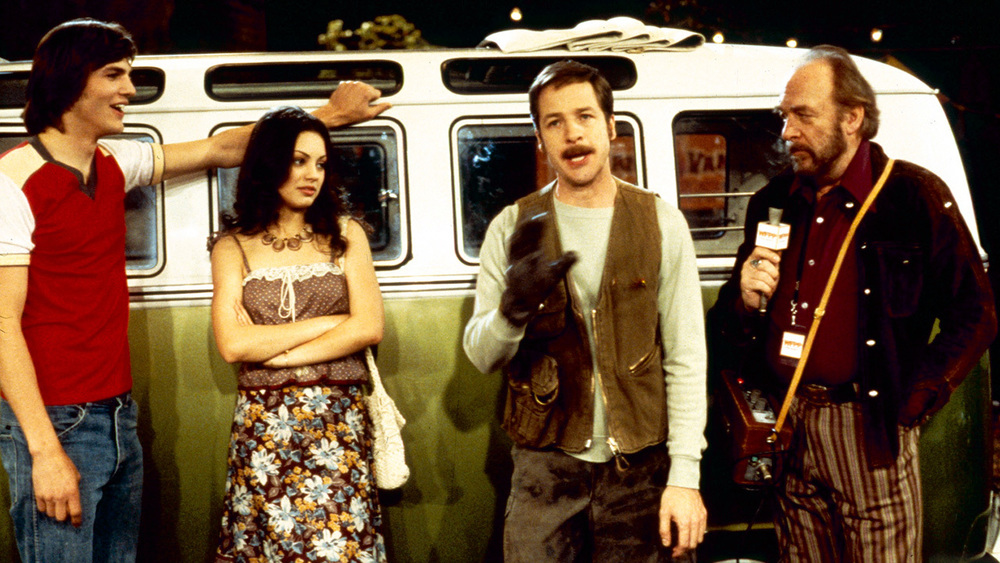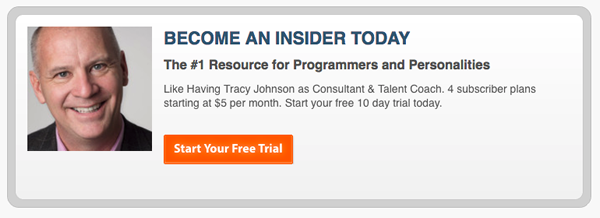“Why one day contests can be a big success”: Tracy Johnson on giveaways

Here’s an interesting question that is sure to inspire a spirited debate between programmers. Which has more promotional value: Giving away valuable prizes by spreading them across several days (or weeks) and dayparts or isolating a short period of time for one day contests.
Let’s say a station has 20 pairs of tickets to a hot concert. Which of the following three giveaway schedules would get the most attention?
- 4 giveaways per day spread across 5 days.
- 2 giveaways per day spread across 2 weeks (10 days).
- 20 giveaways during the morning show on one day.
The natural reaction for most programmers is to build a greater presence by creating multiple appointment tune in times across as many days and time slots as possible.
They reason that stretching the contest for as long as possible will create more promotional awareness. And to lure more listeners to try for the tickets and compile more quarter hours of listening, they want to expose it in more time periods.
But take a look at that third option. It’s hard to think about blowing out all of the prizes in one time slot on one day, isn’t it?
But there’s growing evidence that this may be the best tactic.
One Day Contests Are a Special Event
There’s growing evidence that a high profile Big Show or Big Event Day drives clear ratings gains.
I was fortunate to be included in a presentation that showed how a one-day event that featured a ticket giveaway every 15-20 minutes on ONE DAY drove significant increased listening.
For purposes of demonstration, let’s call the promotion Timberlake Tuesday. The station had 20 pairs of tickets to give away, plus a grand prize of a chance to meet Justin Timberlake before the concert.
Instead of spreading the promotion in the typical way, they instead launched a Ticket Blowout event. The morning show is on from 5-10am. That’s 20 quarter hours (5 hours x 4 quarter hours per hour). Timberlake Tuesday promised a giveaway every 15 minutes all morning long. And everyone who won qualified for the grand prize. They announced the grand prize at the end of the show, and listeners had to be tuned in to win.
To build excitement for the promotion, the station ran presell promos from the previous Wednesday through Monday.
When the ratings results came back, here’s what we learned:
- Weekly cume increased marginally, but daily cume increased by about 15%.
- More significantly, the average quarter hours gained between 20 and 30%.
During the same ratings period, they ran a similar promotion in a traditional way. They gave away tickets to a concert over two weeks, promoting it heavily and encouraging tune in occasions in all time slots.
The ratings results showed no ratings impact. None.
I can’t share the actual data because it is proprietary information and my client wishes to keep the specifics private.
Reasons For The Success
When you think about it, there are several logical reason one day contests like Timberlake Tuesday work so well.
It’s More Exciting. Packaging giveaways in a short time creates a greater sense of urgency. It sounds bigger to promote “A pair of tickets every 15 minutes all morning on Thursday” than “listen for the next chance to win”. In many ways, listeners have become numb to all the contests and promotion on radio stations.
It’s Believable. Typical contests are hard to play because listeners have to listen more than is convenient. And most listeners don’t think they have a chance to win. That’s why typical call in to win contests don’t work. Many listeners, in fact, don’t believe the prizes are actually given away. This addresses that objection, because you’re not only giving away prizes frequently, winners are on the air every 15 minutes.
It’s Easier. Asking the audience to listen all week to try to win is a long shot. They just won’t do it. The only players are those who happen to be listening at the time of the giveaway. But directing all the attention to a specific time is easier to remember, and easier to play. All they have to do is tune in any time on the big day.
It’s More Promotable. The pre-promos are fantastic because there’s a specific call to action that builds momentum as the big day approaches. You could even count down to the launch of the event. It sets appointments and expectation. The net result is that a Timberlake Tuesday has just as much promotional presence as a typical promotion and a lot more excitement. The actual giveaways are just more concentrated over a very short period.
Concentration of Force. The principle of Concentration of Force is powerful. It’s proven that more force directed at a small, defined target has greater impact. This is more proof of that theory.
The Best Reason of All
Perhaps the greatest reason to consider this tactic is that it appeals most to the audience that is hardest to attract.
My study of millennial listeners preferences indicated an excitement for special events. In Fix Your Station For Generation Now, we learned that today’s young adults react to big events. They love specialty programming, big promotions and anything special that stands out.
They are bored with the “same old same old” as one respondent put it.
This appeals directly to their tastes by turning up the volume on promotion and contesting.
Conclusion
It may be hard to reconcile giving away all of the promotional assets in one day contests. But programmers have succeeded with that philosophy for decades. Who hasn’t conducted a weekend promotion that concentrates the giveaways from Friday afternoon through Sunday, with the grand prize payoff on Monday morning?
This is taking that tactic one step further. And it makes sense because the world is moving faster and listeners have shorter and shorter attention spans. Plus, it’s harder to stand out in a media world competing for attention. It’s noisy.
This concept is exciting. It’s fun. And it sounds big!
When you think about it, heavy pre-promotion and creative post-promotion can cover as many days as a more traditional giveaway schedule. But the impact of one day contests appears to be much greater.
Tracy Johnson specializes in radio talent coaching, radio consulting for programming and promotions and developing digital strategies for brands.



